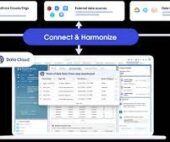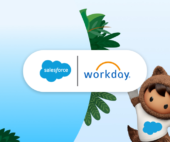| Beginning February 2024, Google and Yahoo! are implementing Google and Yahoo Sender Requirements for all email senders to improve deliverability and help prevent abuse. As an admin of a Marketing Cloud Engagement org, we recommend reviewing your org’s email sending configuration to ensure continued success in reaching your customers’ inbox. |
| What action do I need to take? Authentication best practices are required. What is needed: DomainKeys Identified Mail (DKIM), Sender Policy Framework (SPF), and Domain-based Message Authentication, and Reporting and Conformance (DMARC) need to be in place and properly configured for all sending domains (Sender Authentication Package (SAP) and Private Domains). What to check: Review domains configured to your account in the Marketing Cloud Engagement application under Admin > Account Settings > From Address Management. Validate that any ‘registered’ or ‘verified’ domains used for sending are properly authenticated for use on the Marketing Cloud Engagement platform. If you are unfamiliar with reading email headers to check for authentication alignment, a third-party site like https://aboutmy.email/ helps test for compliance. Salesforce Marketing Cloud Engagement recommends the following actions are taken. Provide an easy, one-click opt out method. What is needed: Starting June 1, 2024, the unsubscribe needs to occur immediately and within the user’s inbox. Marketing Cloud Engagement has the default list-unsubscribe POST functionality. What to check: If you have altered the default list-unsubscribe header to redirect to a customized landing page/subscription center or are using a custom subscription center, this could cause you to fall out of compliance, as this must be a true one-click method for subscribers to opt-out. To help here, consulting a third-party site like https://aboutmy.email/ can help test for compliance. Salesforce Marketing Cloud Engagement recommends the following actions are taken. Keep spam complaints to a minimum. What is needed: Gmail says the ideal spam complaint rate is “…below 0.10% and avoid ever reaching a spam rate of 0.30% or higher What to check: Review the last six months of sends to validate you are not approaching/over a 0.10% complaint rate. If you are at or over a 0.10% complaint rate: first, reexamine your opt-in practices (Anti-Spam and AUP policies); second, utilize a preference center to allow your subscribers to choose the type of content they receive and the frequency; finally, stop sending to the unengaged segment (no opens or clicks in six months or more). Doing these three things keeps complaints low and engagement rates up. Salesforce Marketing Cloud Engagement recommends the following actions are taken. How can I get more information? These best practices are actively being updated by Google and Yahoo!. Check these resources frequently and work with your IT team to ensure compliance. Salesforce Marketing Cloud Engagement is staying current and updating our recommendation for your reference. For assistance in implementing these changes, contact Tectonic today. Google and Yahoo Sender Requirements. |













